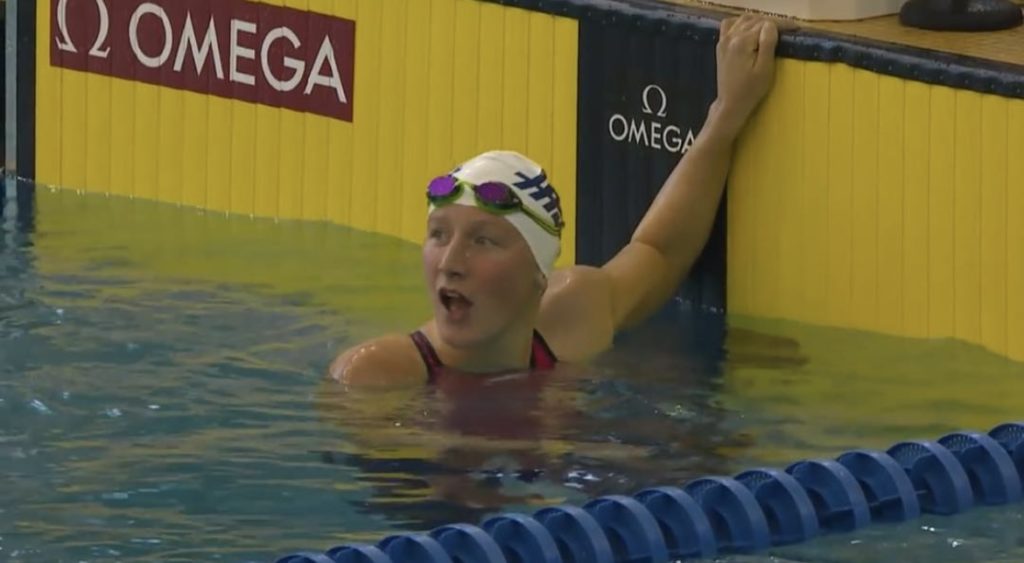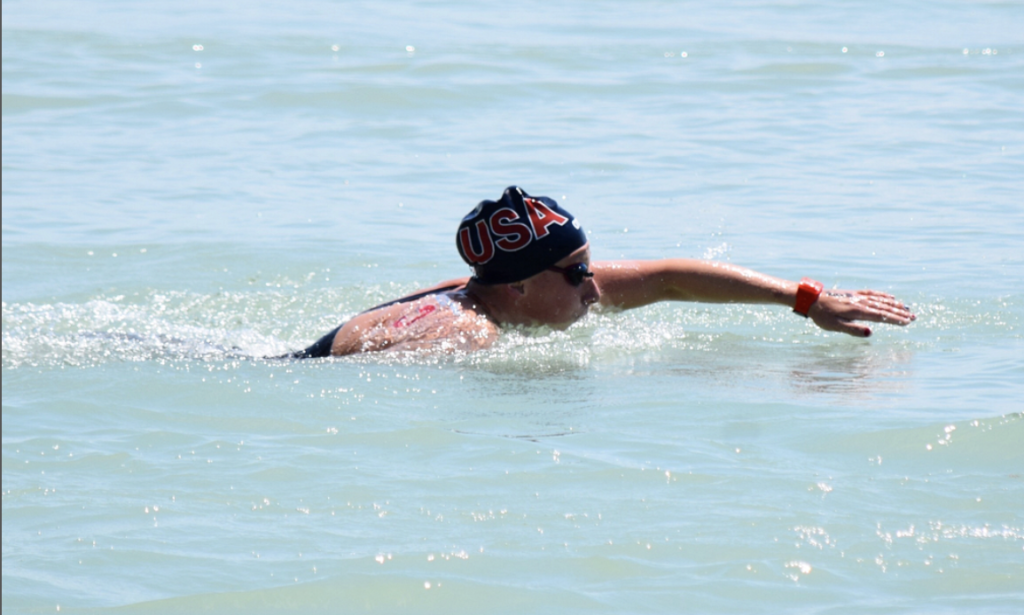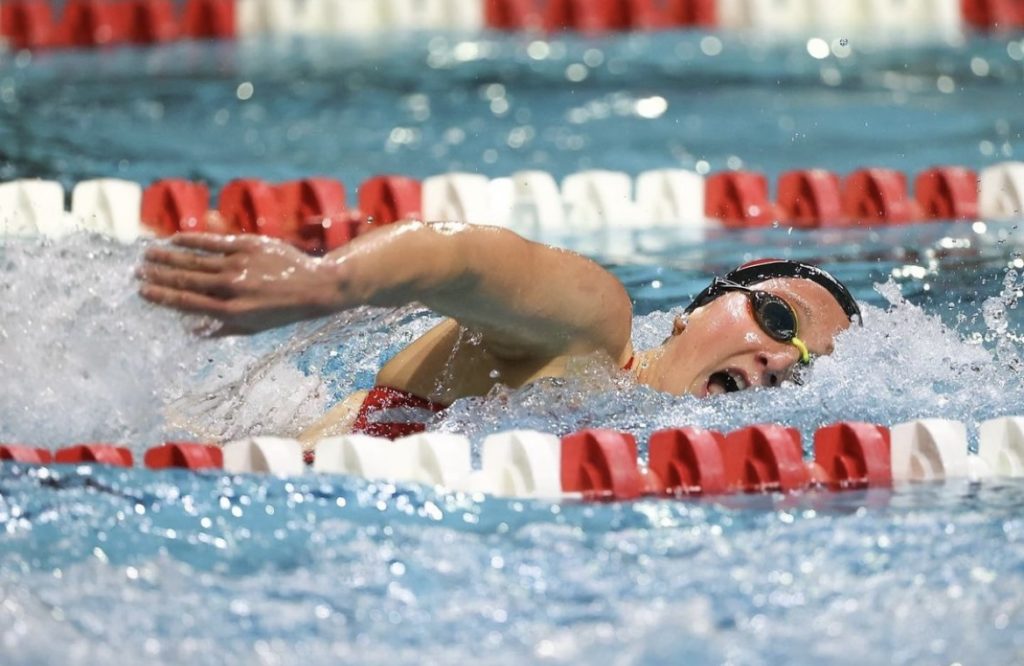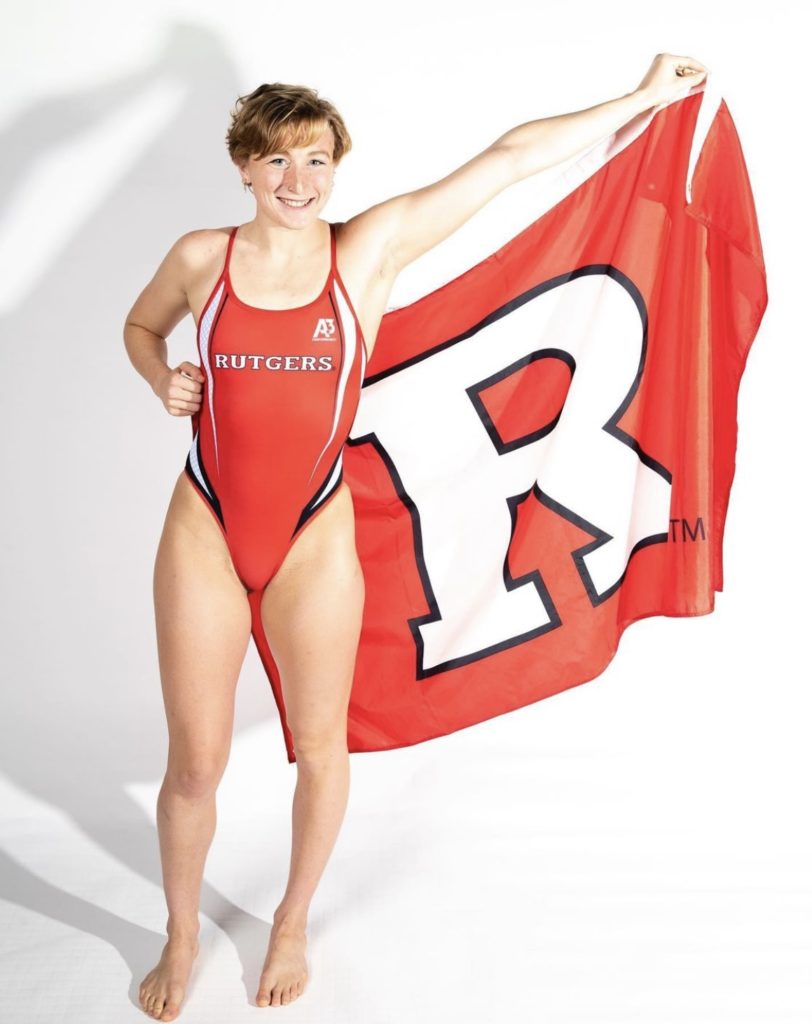Success and Mental Health
By Cat Salladin
Cat is a former U.S. National Team member for Open Water swimming as well as a member of the 2017 World Championship team where she competed in the 25-kilometer event. Currently, she is a swimmer for Rutgers University as well as a Whole Being Athlete Ambassador and a head Campus Captain for The Hidden Opponent. After earning her bachelors degree in Social Work at Rutgers, Cat is now working to earn her MSW degree.
There is no doubt that failure, injury, illness and other widely-recognized negative experiences that plague many athletes often have drastic consequences on the mental well-being of those they affect. Although these unfortunate events can greatly impact an athlete’s mental health and identity, these trials are relatively societally recognized and expected to cause an athlete pain. The idea that success in one’s sport can negatively affect one’s mental health, identity, and love for the sport they compete in is not as commonly discussed.

In my personal experience, the sudden high levels of success I reached as a swimmer played a large role in my battle with mental illness, burnout, and identity as an athlete.
Cat Salladin
When I first made the National Team in 2017, I couldn’t have anticipated the pain that I would experience as a result of the new heights I had reached. Going into the qualifying meet, I hadn’t expected to qualify for World Championships; in fact, it wasn’t even on my radar or in my mind as any sort of goal. I was at the qualifying meet simply because I enjoyed swimming and was excited to be at my first Open Water National Championships.
When I learned that I had qualified for World Championships in the 25k Open Water event, my very first thought was “I have to make it next year, too.” My immediate reaction wasn’t joy, elation, excitement, or pride – it was dread, pressure, and the sickening need to continually live up to my own accomplishments for the rest of my career.

The minute I signed my name on the opt-in sheet for Worlds, I knew that the rest of my swimming career would never be the same.
Cat Salladin
The amount of stress, pressure, and anxiety I felt that summer was crushing. I felt like I didn’t belong on the National Team; I felt inexperienced and young and afraid. On my first trip, I broke out in stress hives all over my body because I was so nervous and was putting so much pressure on myself.
After Worlds when I began to experience the effects of overtraining syndrome and a mysterious shoulder injury that went almost two years disregarded by coaches and myself alike, my success loomed over me like a dark cloud. The oppressive weight threatened to strangle me every time I stepped foot on a pool deck, and, often, it succeeded. My hyperfixation on figuring out how to make the National Team again and live up to the version of myself I’d created in 2017 was constantly at the forefront of my mind. My identity as an athlete and as a person became wrapped up in my ability, or lack thereof, to swim fast.

Because of this identity issue that began as a direct result of the success I was handed, I was unable to cope when setback after setback threatened to derail my career entirely.
Cat Salladin
One would think that facing a severe shoulder injury and eventual surgery, emotionally abusive coaches, overtraining syndrome, an MS scare, transferring schools, a global pandemic, contracting COVID three separate times, and battling Long COVID for over a year would be more likely to top the list of events that have plagued my swimming career the most in the past five years since my stint on the National Team. However, I firmly believe that this is not the case.
Yes, these extremely painful experiences that resulted in many emotional and mental consequeses played large roles in my struggle with swimming. However, at the root of all of these trials is one thing: success. The pressure I placed on myself and the expectations put on me by others as a direct result of my success are the things that have derailed my career the most. My mental health suffered greatly under the weight of my own accomplishments. And, for the past five years, I have eaten, slept, and breathed one goal: to make the National Team again and to prove that I can do it.

The problem is, I know what success really looks like; I know what success did to me
Cat Salladin
As the years have gone by, and I’ve worked to untangle the pain and trauma of my experiences in the sport of swimming over the past five years since World Championships, I’ve realized that there’s a large portion of me that only wants to remake the team because I feel like I should want to remake the team.
I’ve heard very little discussion about the mental health consequeses of success and the lack of want of success as a athlete. After all, athletes are always supposed to be striving for the next big goal; they’re supposed to want to be the best. But, when you realize that success can be more painful than failure and can have a larger negative impact on your love for the sport and your mental health in general, it seems much less appealing.
Yes, it is extremely painful that I have not lived up to the version of myself that I was as a 17-year-old. It’s heartbreaking that I’ve spent the past five years of my career in the sport that I’ve loved since the minute I touched the water scrambling to accomplish anything that could make me seem like I’m not a failure.

Success has haunted me to the point of disdain for the sport I used to enjoy just for the sake of swimming.
Cat Salladin
Now as I’ve realized this and that success can be so much more painful than it’s worth, I’ve begun the long process of healing my relationship with the sport and working to enjoy the simple act of swimming.
As my career is likely coming to an end after this season (unless something changes), my definition of success in the sport has changed. I’m working to hold onto the idea that success to me is no longer remaking the National Team or going best times again; instead, my definition of success is reclaiming my love for the sport and finding my identity as a person and not just as an athlete. My success robbed me of joy in the sport for so many years, and, while the process is grueling and painful, I know that I have to work on my identity and idea of success in order to end my career happy and enjoy the sport. If I’m able to do that, I know that at the end of my career, although I may still be sad that I never made another team, I can rest in the fact that I did end my career successfully.
